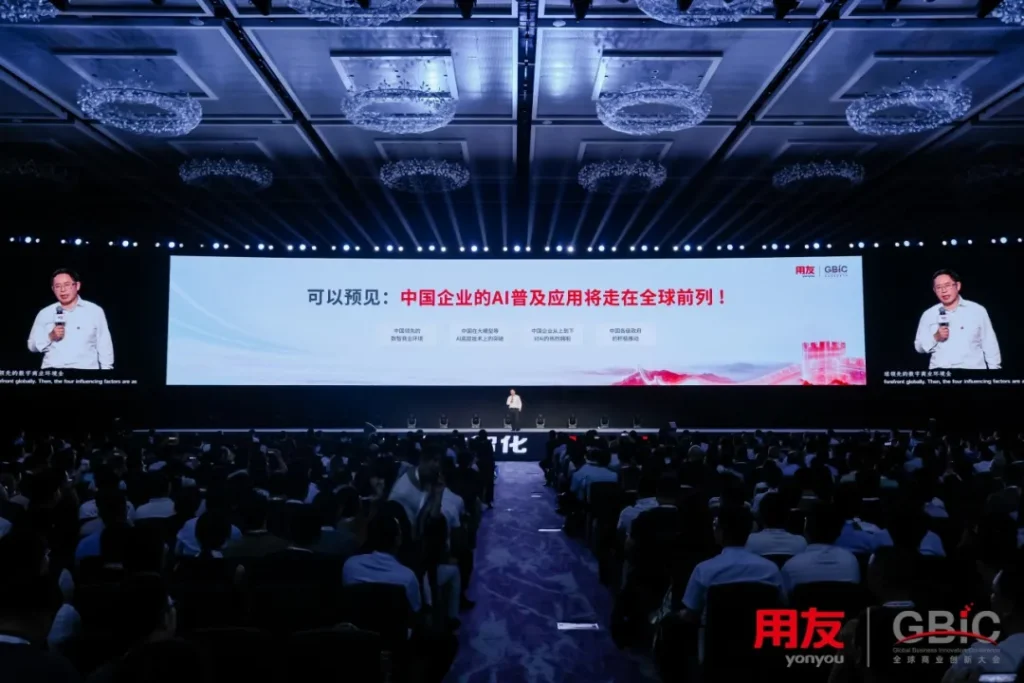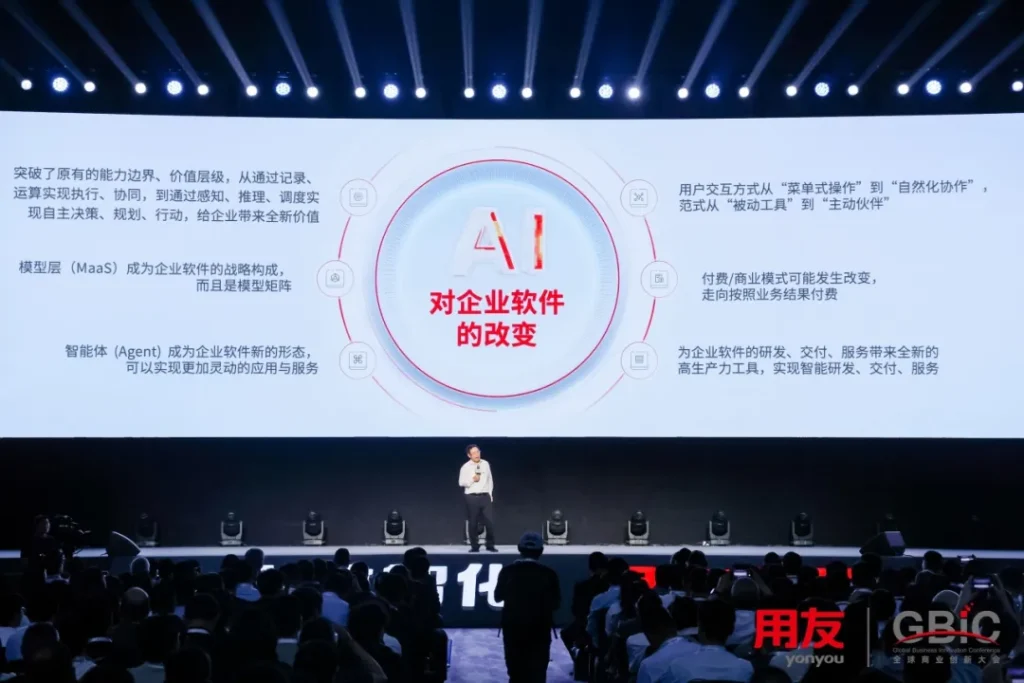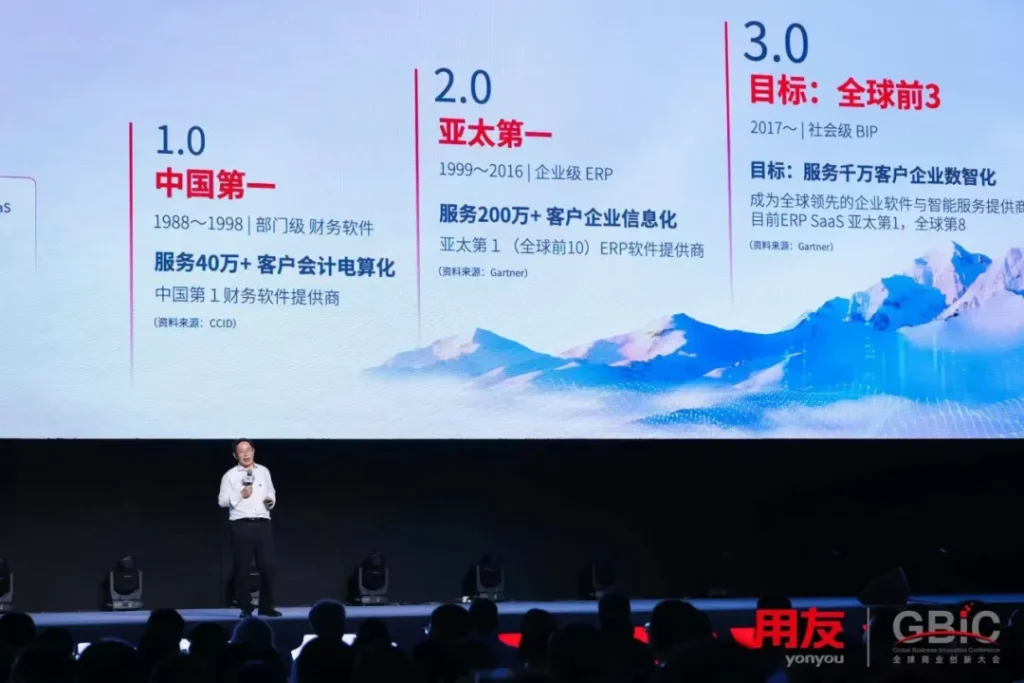Three Key Steps for Successful AI Adoption in Enterprises
With the rapid rise of AI—especially the surge sparked by DeepSeek during this year’s Spring Festival—AI in China has shifted from basic awareness to widespread adoption. Its integration across industries is accelerating, becoming a key driver of new productivity.
According to CCID Consulting, the global AI agent market will grow at a CAGR of over 40% in the next five years. IDC reports that by 2026, half of China’s Fortune 500 data teams will use AI agents for data preparation and analysis.
Enterprises are now the core arena for AI deployment, facing unprecedented opportunities. Wang Wenjing emphasized that with China’s strong digital ecosystem, breakthroughs in foundational AI technologies, enthusiastic enterprise adoption, and active government support, China is poised to lead the world in enterprise AI adoption.

Today, the biggest concern for enterprises is how to make AI truly work in practice. The goals are clear—improving efficiency, reducing costs, enabling precise operations, and managing risks. Wang Wenjing noted that while adopting large models is essential, it is not enough. To ensure successful AI deployment, enterprises need to focus on three key areas:
Upgrading to next-generation digital-intelligent enterprise software
Strengthening data and knowledge governance
Adopting mainstream large models and industry-specific models
Six Ways AI is Transforming Enterprise Software
AI is not only reshaping enterprise management and operations, but also driving revolutionary changes in the enterprise software industry itself. According to Wang Wenjing, AI brings six major transformations:
Beyond traditional limits – From record-keeping and execution to perception, reasoning, and autonomous decision-making, bringing new value to enterprises.
Model-as-a-Service (MaaS) – Becomes a core layer of enterprise software strategy.
AI Agents – A new form of enterprise software enabling more dynamic applications and services.
User interaction – Shifting from “menu operations” to “natural collaboration,” evolving from passive tools to active partners.
Business models – Moving toward outcome-based or pay-per-result models.
R&D, delivery, and service – Introducing intelligent productivity tools to drive smart development, delivery, and support.

As a leading provider of enterprise software in China, Yonyou continues to innovate and drive the industry’s transformation. According to Chairman Wang Wenjing, China’s enterprise software sector has advanced through concept innovation, technological breakthroughs, product upgrades, business transformation, ecosystem development, and global expansion—achieving real competitiveness in the international market.
At the core of this progress is Yonyou BIP, a next-generation platform strategically developed for enterprise digital intelligence. Evolving from ERP to BIP, it represents a new era of enterprise software, bringing greater value to businesses. As a global leader in enterprise software and intelligent services, Yonyou BIP’s most distinctive advantage is its native integration, built on four dimensions:
AI × Data × Process Integration – enabling practical AI adoption.
Unified Platform, Applications, and Ecosystem – ensuring seamless collaboration.
End-to-End Business Integration – connecting finance, HR, supply chain, and more across all levels of the enterprise.
Enterprise and Value Chain Collaboration – extending from core enterprises to upstream and downstream partners for full supply chain synergy.
Through this native integration, Yonyou BIP eliminates “application silos, data islands, and fragmented intelligence,” empowering enterprises with a unified foundation for digital and intelligent operations.
China’s Enterprise Software and Intelligent Service Platforms Poised to Lead Globally
Driven by the AI wave, enterprises in China and worldwide are accelerating digital and intelligent transformation. Increasingly, companies are adopting or upgrading to China’s next-generation enterprise software and intelligent service platforms—advancing AI adoption and moving toward data-driven, intelligent operations.
Wang Wenjing highlighted four factors underpinning China’s global leadership potential:
A strong digital business environment that fosters innovation in next-gen enterprise software.
Decades of enterprise learning and innovation, evolving from importing ERP practices to exporting Chinese business innovation and management to the world.
Rapid AI adoption in China, positioning Chinese enterprise software to surpass Western counterparts.
Fast-paced product innovation by Chinese software vendors.
Looking ahead, just as SAP and Oracle once globalized best practices in German manufacturing and American services, China’s enterprise software and intelligent service providers will bring Chinese digital business innovation to the world—much like the global rise of China’s mobile internet and new energy vehicles.
For over 30 years, Yonyou has led enterprise services. Today, through Yonyou BIP, it is empowering both Chinese and global enterprises in digital transformation and AI adoption. To date, more than 65,000 large and mid-sized enterprises have chosen Yonyou BIP, while 820,000 SMEs use cloud services from Yonyou’s subsidiary, Chanjet. With users across 40+ countries and regions, this underscores the strength of China’s next-generation enterprise software.


